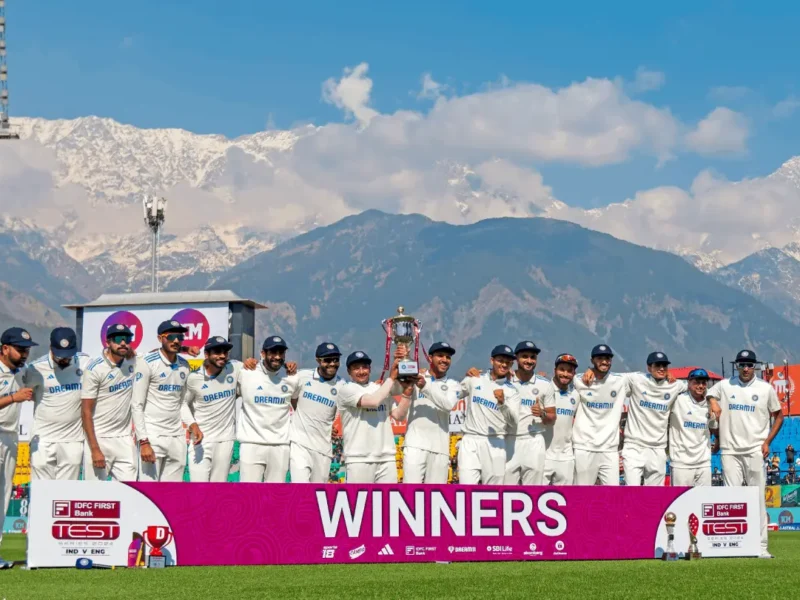
Pakistan In A Flux, Adds To Threat Of Radicalization
By D.C. Pathak
Strategic analysts are writing a lot on the situation in Pakistan in the context of what is happening to Imran Khan in the wake of criminal cases being pursued against him with endorsement from a hostile Army and wondering where that country – clearly in an economic mess – was headed. They are also trying to analyze the implications of all of that for India.
There is little doubt that the proverbial interplay of ‘America, Army, and Allah’ was still in operation in Pakistan and an insight into its nuances would greatly help to make a correct assessment of the scene in India’s neighborhood.
A study of Imran Khan’s political profile and personal traits is important and so is the history of the relationship that the Pak Army has had with the US on one hand and the traditional politicians of Pakistan, on the other.
Three things about Imran Khan are distinctive and they hold good even now.
First, he appeared on the political scene through the unconventional route of a prior connection with the people particularly the wide popularity amongst the country’s youth that had already been established by him as a legendary cricketer and as a man of bold views who could speak upfront about what had been ailing Pakistan.
Second, Imran Khan has been an Islamic fundamentalist at heart, and he did not try to put any ‘cover’ on that. And thirdly, his political base is in Khyber Pakhtunkhwa – formerly NWFP – which had been in historical terms, the epicenter of the anti-West Wahhabi ‘revolt’ staged on the war cry of Jehad in the mid-19th century. This Jehad was part of the larger movement simultaneously affecting Algeria, Arabia, and the Indian subcontinent, which was conducted under the guidance of many prominent Ulema of the times including Abdul Wahab.
Though suppressed by the British, it left the NWFP-Afghanistan belt highly radicalized – it is the imprint of this past that gave a radical orientation to Pakistan Tehrike Insaf (PTI) formed by Imran Khan with its hold in the predominantly Pakhtun home ground of KP.
Tehrike Taliban Pakistan (TTP) of course carries the real historical legacy of the Wahhabi Jehad and is for that reason intrinsically against the US and hostile to the Pak Army establishment because of the latter’s perceived closeness to the American administration. It is not surprising, therefore, that Imran Khan’s party and the radical TTP are found to be on the same side of the fence in the current political scenario in Pakistan.
The internal scene in Pakistan has traditionally depended on the political role of the Pak Army-ISI combine which determined the equation between the latter and the spectrum of political parties.
The army’s hold and legitimacy were derived from its claims of being the protector of Pakistan against external threats particularly those revolving around Indo-Pak relations including the ‘dispute’ regarding Kashmir.
The Pak army has commanded unparalleled economic and industrial assets and it has seen to it that no political dispensation adopted any policies that did not serve the former’s interests.
The last time Pakistan saw an army coup was when Gen. Parvez Musharraf confronted by Prime Minister Nawaz Sharif in the wake of the Kargil war, ousted the civilian government in October 1999 in a bloodless coup.
Later under pressure from other countries including Saudi Arabia, Musharraf did not come in the way of Sharif being allowed by the judiciary to leave the country.
After Musharraf declared martial law in Pakistan in 2007, Pakistan witnessed a rare unity of purpose among the political parties chiefly the PPP and PML who moved for the impeachment of President Musharraf finally precipitating a situation in which Musharraf also left Pakistan in October 2008 to take exile in London.
The Musharraf saga led the Pak army to take to maneuvering rather than confronting the political parties and prefer a self-made politician like Imran Khan over the hard-boiled leaders of the PPP and PML in the election of 2018. The Army in Pakistan has since become a backhand player in Pakistan’s politics and has recently enlarged its role as a stakeholder in the economic development of Pakistan to further add to its power of authenticity.
In April 2022, the success of the no-confidence motion against Imran Khan brought in Shehbaz Sharif, brother of Nawaz Sharif as the Prime Minister who maintained good relations with the Pak army. He dissolved the Parliament ahead of the completion of its five-year tenure in August 2023 handing over the rule to an interim government.
There is however a situation of uncertainty about the general election in Pakistan being held on time as the army has once again emerged as the arbiter of Pakistan’s political future.
The shift of the Pak army’s stance from one of supporting Imran Khan in 2018 to an implicit hostility towards him during the conduct of criminal cases lodged against him after he was ousted in 2022, sits well with the mutual friendship that had traditionally existed between Pak generals and the Pentagon.
Pak army had already endeared itself to the US by pretending to act as the mediator between the Taliban and the US at Doha at a time when the Joe Biden administration desperately needed to fulfill its promise of withdrawing the American troops from Afghanistan.
Pak army had struck an equation with the Taliban knowing well that Islamic radicals represented a significant part of the spectrum of faith and could not be disowned for socio-political reasons.
Pakistan managed to reinstall the Taliban Emirate at Kabul in Feb 2021 securing a certain strategic advantage over India in Afghanistan.
Imran Khan, when in power, had betrayed his anti-US, radical and pro-people stance and later made a direct allegation of the US hand behind his ouster which turned the Pak army -always known to be on the right side of the US – also against him.
The political environment in Pakistan presently places Shehbaz Sharif of PML and Pak Army on the American side and Imran Khan’s PTI and Islamic radicals in the opposite camp with the decisive power lying in the hands of the people of Pakistan who on balance tilted in favor of Imran Khan.
In the time of Prime Minister Narendra Modi, India’s relations with Saudi Arabia, UAE, and Egypt had become extremely close, and considering the fact that these countries also befriended the US and disapproved of radical Islam, India’s leverage in the Muslim world, on the whole, has increased at the cost of Pakistan whose leadership continued to be ambiguous towards radicalization while attempting to be in the good books of the US Administration.
A factor that has in recent years impacted both domestic and foreign policies of Pakistan is the steady Sino-Pak axis that has, as anticipated, progressively become an anti-India alliance.
The two hostile neighbors of India have taken to covert operations against this country and the time therefore has come for India to strategies for dealing with them together on a note of deterrence.
India has already set in motion such a strategy embracing the challenge on the borders, bilateral and multilateral collaborations designed to counter the two hostile neighbors and stronger countermeasures against their attempts to fish in our troubled waters domestically.
The China-Pak collaboration against India has deepened in the wake of the abrogation of Article 370 on Kashmir by the Indian Parliament in August 2019 – one reason for this is the give-and-take that these two countries had reached on the matter of CPEC passing through Northern Areas of POK which had evoked strong protests from India.
Another development of great strategic importance that brought the two hostile neighbors of India closer to each other was the adjustment made by them over Afghanistan which had come under the grip of the Taliban once more in 2021.
Presumably, the Taliban gave an assurance to China that nothing would be done to cause discomfiture to China on the issue of treatment of Muslim minorities there and this paved the way for China to extend its B&RI to Afghanistan as a measure of economic assistance to that country.
There are two more factors of significance operating in the Pak-Afghan belt that caused concerns to India – one is the reality of the Biden administration deriving a comfort of distance in relation to this troubled territory after the withdrawal of American troops from Afghanistan and the other – again a reality – about Taliban and China fully sharing an anti-US ideology which put them politically on the same side of the fence.
With the reappearance of a Cold War on the horizon – this time between China leading the Marxist block and the US in the lead of the Capitalist West – Pakistan was able to pretend to be neutral while India had to be in the camp opposed to China for pursuing its security strategy.
The terrorist threat to India from the Pak-Afghan region is on the rise and the strategic alliance between Pakistan and China was certainly behind it.
India on its part has successfully got all international forums to condemn terrorism in all its forms and particularly denounce those who instigated it by extending financial assistance to the terrorists.
India has done well to adopt a policy on the Ukraine-Russia military confrontation that broadly enabled this country to maintain its bilateral bonds with President Putin without letting that conflict come in the way of a deepening Indo-US friendship.
India has acquired a new status as a wise counsel of the world on issues of global peace and economic development and India’s Presidentship of G20 which Prime Minister Modi handled through a mega show of strength by India, has further added to this country’s say in the world affairs.
A singular achievement of G20 was that Delhi Declaration was adopted unanimously – among other things it condemned terrorism in strong terms and called for global cooperation in pushing counter-terrorism initiatives further.
In the background of the continuing cross-border terror inflicted by Pakistan in Kashmir, it is important that India’s G20 Presidency reminded the Summit of how terrorism was the prime threat to the democratic world.
Significantly, the proportion of outsiders among the terrorists operating in Kashmir has reportedly increased evidently indicating a deeper planning on the part of Pakistan to infiltrate ‘mujahideen’ into the valley. The pro-Pak leadership of the National Conference and PDP has unsurprisingly, stepped up the advocacy of talks with Pakistan without – as is usual for it – making any suggestion that Pakistan must refrain from supporting cross-border terrorism.
These two so-called mainstream parties remain heavily dependent on the separatist lobby in Kashmir, for their electoral fortune. They are encouraged by the renewed effort of Pakistan through the Organization of Islamic Conference (OIC) and other channels to press for talks between India and Pakistan on Kashmir.
Meanwhile, by focusing on building economic relations with major powers and at the same time militarily strengthening India with an emphasis on self-dependence, India seemed to be playing all right cards. External threats to India’s internal security largely attributable to the ‘covert’ plans of China and Pakistan should, however, be flagged prominently.
Active security orientation programs should be undertaken for the country’s administrative machinery and at the same time the citizens at large should be made aware of the need to enhance their contribution to safeguard the nation. India should keep up the effort to check the spread of radicalization in the country since the misuse of social media as a weapon in the hands of the adversary – outside and at home – is on the rise.
With its belief in the multipolar world order, India is rightly seeking bilateral and multilateral friendships to enhance its strategic and economic strength and focusing on capacity building for safeguarding the country on land and sea and in the air as well.
(Pathak is a former Director of the India’s Intelligence Bureau.)




